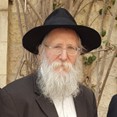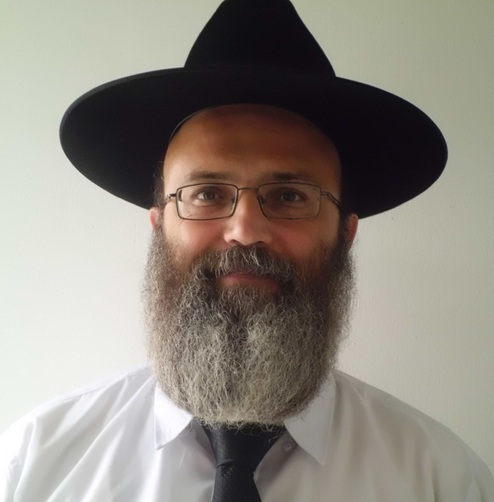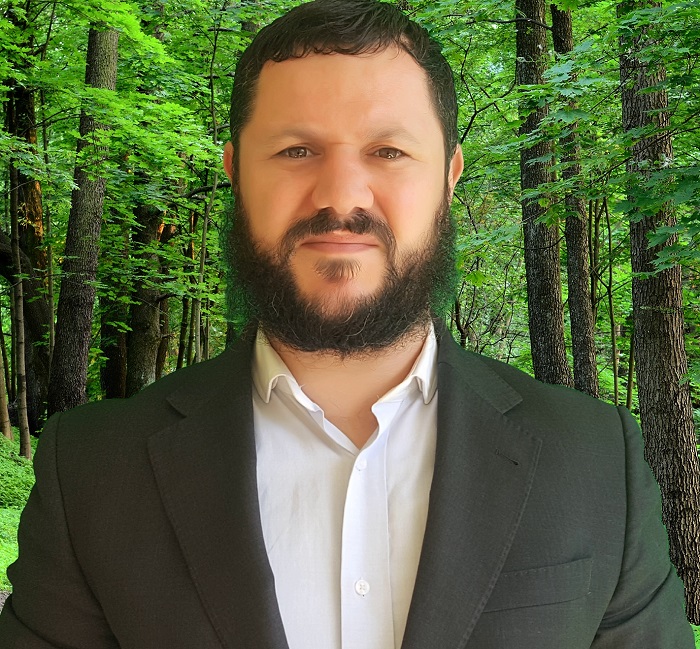
Welcome to the Course
Understand what you will gain and see the syllabus for this course

Foundations of Universal Ethical Monotheism
Enrollment is Closed
About This Course
The Seven Commandments for Humanity form nothing less than the Divine Constitution for civilization. Given through the Torah as the only revelation binding on all peoples, these laws are the absolute foundation for justice, morality, and peace.
Like a constitution shapes a nation, these Seven Laws shape all humanity — providing the necessary framework to normalize national and international laws, secure human rights, foster ethical relationships, and guide each individual toward personal fulfillment. This course explores their historical origins, legal significance, and contemporary relevance as the universal legal system for a united and peaceful world.
What You’ll Learn
Week 1 — The Purpose of Creation and the 7 Universal Commandments
Week 2 — The Origins of the Noahide Code and the Basis for Its Fulfilment
Week 3 — Awareness of G-d and the Torah of Moses
Week 4 — Deniers and Deviators from the Foundations of Faith
Week 5 — Proselytizers and False Prophets
Week 6 — The Prohibition Against Creating a New Religion or Adding a Commandment
Week 7 — Liability to Divine and Earthly Punishments
Week 8 — Torah Study for Righteous People
Week 9 — Serving G-d through Prayer
Week 10 — Serving G-d through Blessings and Grace after Meals
Week 11 — Torah Moral Conduct
Week 12 — Return to One’s Original Identity
Practical Outcomes
- Explain the Seven Universal Laws and their purpose in clear, accessible language.
- Map the historical roots of ethical monotheism and its relevance to modern society.
- Differentiate core beliefs from common misconceptions using primary sources.
- Build a simple daily practice: prayer structure, blessings, and gratitude routine.
- Apply universal ethical principles to personal decisions and community life.
- Evaluate claims (proselytizing, new-religion assertions) with a sound framework.
- Engage in respectful dialogue about faith, ethics, and law with diverse audiences.
- Study effectively: select appropriate texts and follow study-ethics for Righteous People.
- Summarize weekly learning in short reflections and communicate insights succinctly.
- Create a personal action plan for ongoing growth and service to your community.
Skills You’ll Gain
Requirements
Students are expected to have taken the Courses Universal Ethics and Civilization 101 and 102 before taking this Course.
Course Staff

Rabbi Moshe Weiner
Position: Overseeing Rabbi of the Institute Expertise: The Detailed Principles and Precepts of the Noahide Code Rabbi Weiner is the author of many books in Torah-based Law, including the three-volume series "Sheva Mitzvot HaShem," which is the first in-depth codification (Shulchan Aruch) of the Noahide Code. Rabbi Weiner is recognized by the great Rabbinical authorities in Israel and around the world as one of the foremost Torah scholars in our generation. He currently lives in Jerusalem with his wife and children and teaches weekly lessons on the Noahide Code to Rabbis and laypersons from around the world, at advanced and beginning levels, respectively.

Rabbi Moshe Bernstein
Specializes in Halacha for Noahides, focusing on how the Seven Universal Laws are studied, practiced, and implemented in contemporary life. As faculty at the Noahide Academy of Israel, he teaches several halachic courses that cover foundations (belief, dignity of life, family), civil justice, and day-to-day observance—equipping students, educators, and community leaders with reliable sources and practical direction. Rabbi Bernstein is the author of the books: Light Onto the Nation - A Guide to the Seven Noahide Laws and Light Onto the Torah Portions- Insights on the Torah portions for Noahides. Stories of Faith for Noahides: Inspiring Stories for Noahides from the Righteous of all Generations, along with articles and study guides that make classic sources accessible to modern learners. His classes combine close reading of biblical and rabbinic texts with case-based discussion. He is known for clear explanations, careful referencing, and a deep teaching style that supports students at all levels.

Rabbi Dr. Moshe Perets
Rabbi Dr. Moshe Perets serves as Founder and Executive Director of the Noahide Academy of Israel – International Institute for the Seven Universal Laws. Bridging Torah and science, he earned an MD from the University of Louvain in Brussels and an MS in Biomedical Research from the Hebrew University of Jerusalem, and received Rabbinical Ordination at the Chabad Yeshiva of Brussels in 2011. Before focusing full-time on global education, Rabbi Perets conducted stem-cell research at Hebrew University and led humanitarian missions in Africa, guided by a commitment to the physical and spiritual wellbeing of all people. Living in Jerusalem with his wife and children, he teaches the Noahide Code and coordinates the development of Noahide communities across the world in five languages. His work emphasizes rigorous scholarship, practical ethics, and community leadership, equipping students and ambassadors to apply universal moral principles in contemporary life.
